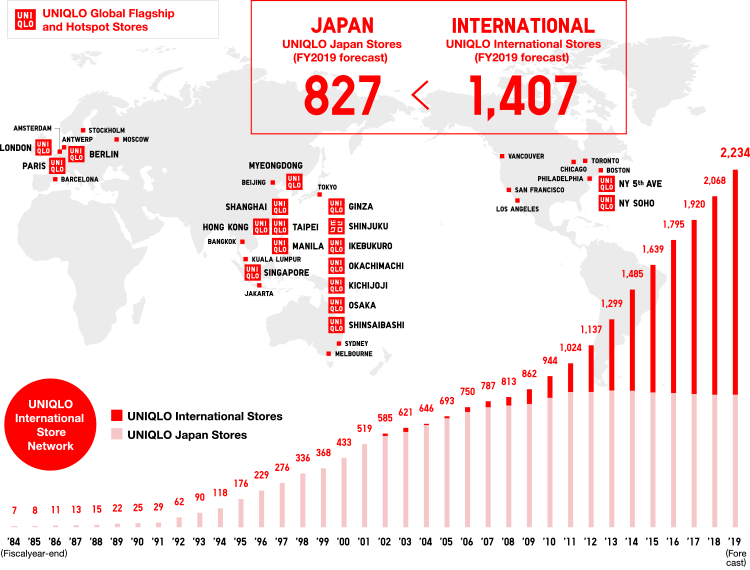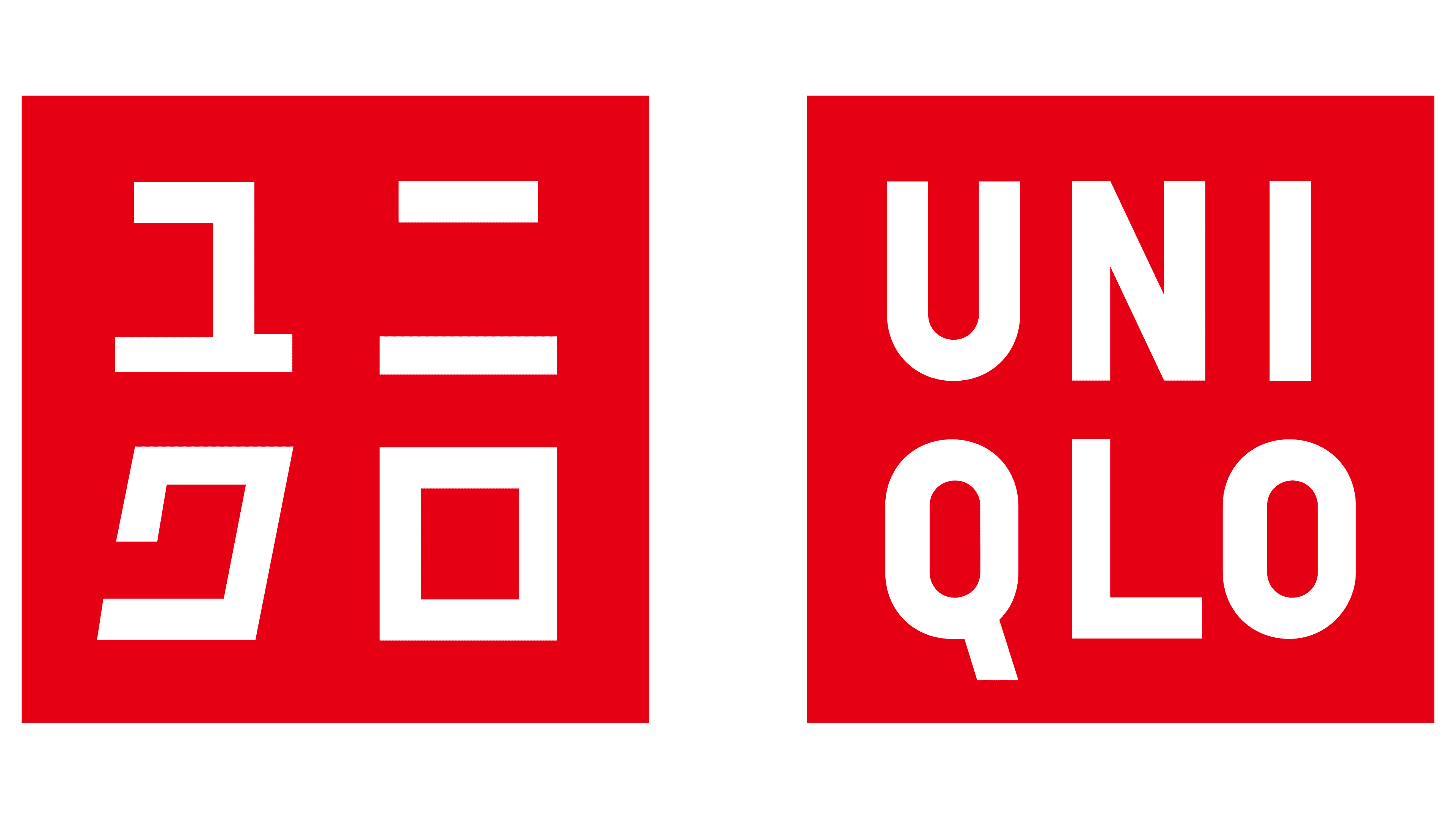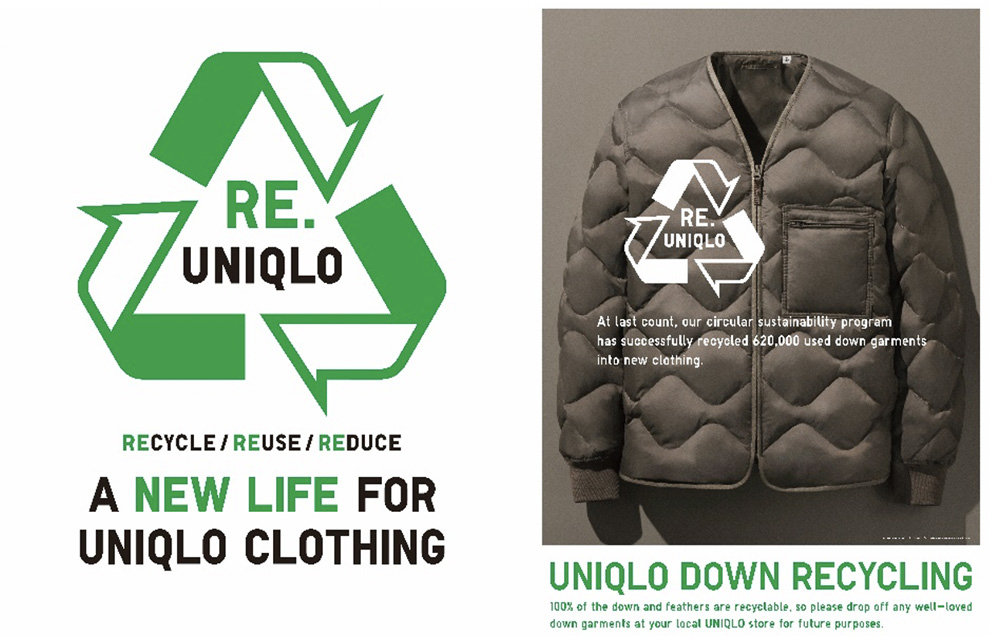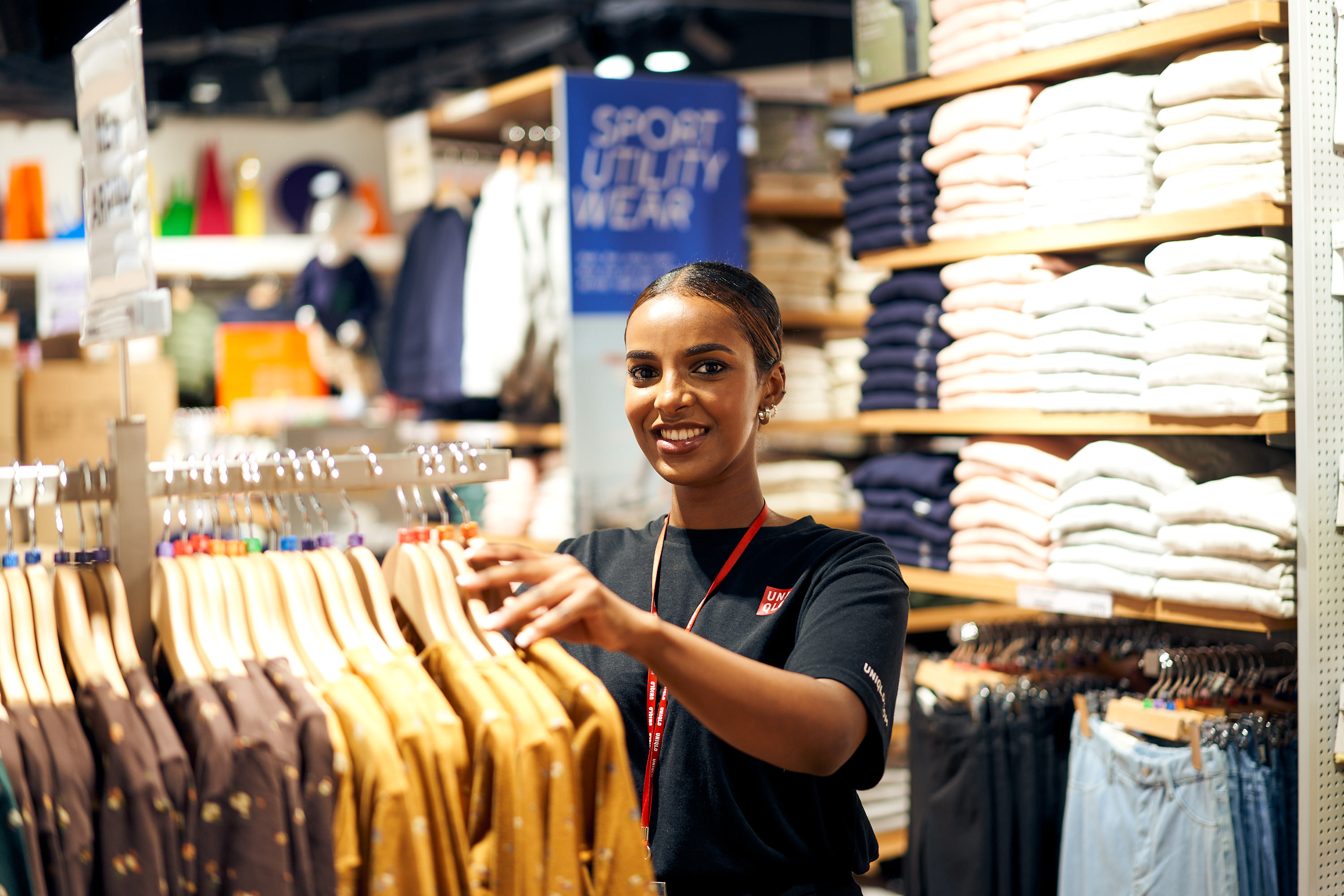Imagine that you live in a world where your clothes are not only fashionable, but also practical, flexible and suitable for any occasion. Welcome to Uniqlo, the global leader in casual fashion, which is changing the way we think about clothes.
Tadashi Yanai founded the Japanese company Uniqlo in 1984, focusing on price, quality and simplicity, and it has completely changed modern fashion. With over 2,300 stores in more than 25 countries, the small Hiroshima store has become a global powerhouse. The brand’s goal is simple but profound: to create clothes that combine modern technology and classic design, for everyone and everywhere. The philosophy of Uniqlo is the aim for “casual wear” – clothing that can be worn in any season, style, or cultural setting. The goal of LifeWear is to offer timeless items that improve everyday living while ensuring comfort, toughness, and versatility. This approach aims to meet the increasing market need for high-quality, stylish, and functional apparel.

Uniqlo has a competitive edge because of its ability to blend history and technology. With the aid of HEATTECH and AIRism materials, the company is continuously pushing the limits of what may be worn. HEATTECH technology keeps you warm without the need for extra layers, while AIRism keeps you cool in every situation. These advancements are well received by contemporary customers who want solutions that fit their hectic schedules. In the fashion industry, which is frequently influenced by trends, Uniqlo stands out for its dedication to traditional, understated design. Another significant market need that is being satisfied by a focus on sustainability is the rising demand for eco-friendly fashion. Because Uniqlo uses ethical production methods and eco-friendly materials, style and sustainability go hand in hand.
The need for clothing that can adapt to many climates and lifestyles is growing as the globe gets more linked. Uniqlo not only meets but exceeds this goal by producing items that appeal to everyone, from Tokyo students to New Yorkers. Its widespread appeal stems from a profound comprehension of the human need for identity and unity. Uniqlo continues to shape the future of fashion through its innovative technologies, customer-centric approach, and unwavering commitment to quality. Whether you’re a long-time fan or new to the brand, Uniqlo is more than just clothing – it’s a lifestyle.
This blog explores how Uniqlo continues to shape the future of fashion through its innovative technologies, customer-centric approach, and unwavering commitment to quality. Whether you’re a long-time fan or new to the brand, Uniqlo is more than just clothing – it’s a lifestyle.

Uniqlo, a global leader in casual wear, is driven by a mission to create LifeWear – timeless, high-quality clothing that enhances daily life. This mission is rooted in the belief that fashion should not only be functional and stylish but also sustainable. As the brand continues to expand globally, its vision remains steadfast: to combine innovation, simplicity, and responsibility in creating clothing that benefits both people and the planet.
Achieving the Vision
Uniqlo uses a combination of customer-centricity, sustainable business practices, and technical innovation to realize its objective. By implementing cutting-edge fabric innovations like as HEATTECH, AIRism, and DRY-EX, the company guarantees the longevity and functionality of its apparel. Additionally, Uniqlo uses eco-friendly materials like organic cotton and recycled polyester, minimizes waste, and lowers carbon emissions through responsible production methods.
The “Re.Uniqlo” campaign, which encourages consumers to recycle their used Uniqlo apparel, is one of the initiatives Uniqlo has put in place to deepen its commitment to sustainability. The brand’s commitment to circular fashion is further demonstrated by the fact that these clothes are either donated to people in need or transformed into new things.

Goals and objectives
- One of Uniqlo’s main objectives is to lessen its environmental impact by using sustainable materials and renewable energy. Advancing social justice via community-focused projects and ethical work practices. Making long-lasting, high-quality apparel to counter the fashion industry’s disposable culture.
- By concentrating on these goals, Uniqlo hopes to meet the rising demand from customers for sustainable and transparent apparel.
Core Values
- Innovation, sustainability, quality, and simplicity are what Uniqlo stands for. Every facet of the brand, from marketing tactics to product design, is interwoven with these ideals. In order to ensure that future generations inherit an ecologically sound planet, Uniqlo is dedicated to sustainability, which shows their philosophy in making a beneficial influence on both society and the environment.
Long-Term Vision
Uniqlo aspires to become a pioneer in sustainable fashion by integrating environmentally responsible practices into every stage of its supply chain. The brand envisions a future where clothing is not only stylish and functional but also ethically produced and sustainable. Over time, Uniqlo aims to lead the industry in setting new standards for sustainability while continuing to meet the evolving needs of its customers.
Brand Identity
- The name “Uniqlo” stems from “Unique Clothing,” a reflection of the brand’s mission to deliver versatile, high-quality apparel for everyone. Its identity is rooted in simplicity and innovation, mirroring its mission to provide functional, stylish clothing that transcends cultural and seasonal boundaries.

Target Market
- Uniqlo’s customers are diverse, ranging from young professionals to families and active individuals. These consumers value practicality, quality, and affordability, and they are increasingly motivated by brands that prioritize sustainability and ethical practices. By offering functional designs, innovative fabric technologies, and eco-friendly options, Uniqlo meets their needs while appealing to their growing awareness of social and environmental issues.
- Through its commitment to innovation, simplicity, and sustainability, Uniqlo not only meets the expectations of its target audience but also inspires them to make more responsible choices. This alignment of brand values and customer aspirations ensures that Uniqlo remains a global leader in sustainable fashion for years to come.
Brand Identity and Design
- The international clothing company Uniqlo has carefully created its brand to embody its basic principles of quality, innovation, and simplicity. The brand’s name, graphic elements, logo, and communication style all work together to communicate its goal of making clothes that are both practical and affordable for everyone.
- The name “Uniqlo” originated from the phrase “Unique Clothing Warehouse.” During the brand’s registration in 1988, a typographical error occurred when a staff member misread the intended “C” in “Uniclo” as a “Q,” resulting in the name “Uniqlo.” This serendipitous mistake led to a distinctive and memorable brand name that has become globally recognized.
- Uniqlo’s logo is a testament to minimalist design, featuring bold, sans-serif typography enclosed within a red square. This design draws inspiration from the traditional Japanese hanko (seal), symbolizing authenticity and cultural heritage. The red and white color scheme not only reflects Japan’s national flag but also conveys energy and passion, aligning with the brand’s dynamic approach to fashion.

- Visual Identity: Colors, Typography, and Style
- The red and white color palette is central to Uniqlo’s visual identity, embodying both its Japanese roots and a modern, global appeal. Red signifies vitality and excitement, while white represents simplicity and purity. This combination ensures high visibility and instant recognition across diverse markets.
- The typography used in Uniqlo’s branding is clean and straightforward, utilizing a sans-serif typeface that enhances readability and conveys a contemporary aesthetic. This typographic choice reflects the brand’s commitment to clarity and functionality, mirroring the design principles of its apparel.
- Brand Voice and Messaging
- Uniqlo’s tone of voice is characterized by simplicity, clarity, and inclusivity. The brand communicates in a straightforward and approachable manner, emphasizing the functionality and universality of its products. This minimalistic communication style mirrors Uniqlo’s product design philosophy, focusing on essential clothing that transcends trends.
In its messaging, Uniqlo often highlights themes of innovation and practicality, appealing to a broad audience seeking quality and value. The brand’s campaigns are designed to resonate with individuals across different demographics, reinforcing its identity as a provider of “LifeWear” – clothing designed to improve everyday life for everyone. Through a cohesive blend of name origin, logo design, visual elements, and communication style, Uniqlo effectively embodies its brand values. This integrated approach has established Uniqlo as a distinctive and influential presence in the global fashion industry, consistently reflecting its commitment to simplicity, quality, and innovation.
Uniqlo’s success as a global fashion brand lies in its ability to address fundamental human needs while delivering value, functionality, and inclusivity. Using Maslow’s Hierarchy of Needs as a framework, Uniqlo’s brand positioning emphasizes safety, belongingness, and self-esteem to create a strong emotional connection with its target audience.
Addressing Consumer Needs
Meeting the Physiological Needs of Customers Uniqlo guarantees accessibility by providing reasonably priced, superior essentials that meet daily wardrobe requirements. The brand’s dedication to usefulness is demonstrated with necessities like AIRism for breathability and HEATTECH for warming. Uniqlo meets the fundamental demand for functional clothing by producing items that are comfortable in all weather situations. Safety and Security Needs Uniqlo’s commitment to sustainability and ethical practices provides consumers with peace of mind.
Initiatives like the “Re.Uniqlo” program, which promotes recycling and upcycling, reassure customers of the brand’s dedication to environmental protection. Additionally, Uniqlo’s fair labor policies and transparent supply chain practices address the growing demand for socially responsible production, fulfilling the need for security in consumer choices.

Inclusivity and Sense of Community
Social Needs and Belongingness through the creation of apparel that cuts over age, gender, and cultural barriers, Uniqlo promotes inclusivity and a sense of community. Ads such as “LifeWear for All” emphasize solidarity and common ideals while showcasing the worldwide appeal of Uniqlo’s merchandise. By providing apparel that caters to a wide range of demographics and lifestyles, Uniqlo establishes a brand identity that speaks to the need for belonging and connection.
Needs for Self-Esteem Customers are empowered by Uniqlo’s creative designs, which enable them to express their uniqueness while being functional. The UT (Uniqlo T-shirt) series is one example of how partnerships with designers and artists transform commonplace apparel into a platform for individual expression. Customers’ requirements for self-esteem are met when this emphasis on design and fine craftsmanship are combined to make them feel fashionable and confident.

Positioning Statement
With its timeless, premium LifeWear that is made for everybody, Uniqlo combines sustainability, innovation, and utility to improve everyday living and satisfy the wide range of demands of a worldwide customer base.
This approach emphasizes Uniqlo’s distinctive value proposition, which is providing inclusive, adaptable apparel that strikes a balance between functionality and style. Its cutting-edge fabric innovations, moral business conduct, and all-encompassing design philosophy provide it a competitive edge over rivals that are only interested in luxury or trends.
Competitive Advantage
- Accessibility: Affordable pricing for premium-quality products.
- Sustainability: Programs like Re.Uniqlo and use of recycled materials respond to environmentally conscious consumers.
- Innovation: Advanced fabrics such as HEATTECH and AIRism provide unmatched functionality.
- Inclusivity: A design philosophy that transcends trends, catering to diverse lifestyles and demographics
Target Audience
- Young Professionals: These individuals seek versatile and stylish pieces that transition seamlessly from work to leisure. Motivated by value and sustainability, they align with Uniqlo’s ethical practices and innovative designs.
- Families: Parents value Uniqlo’s durable, comfortable, and functional clothing for themselves and their children. The brand’s affordability and reliability meet the practical needs of family-oriented consumers.
- Active Individuals: Uniqlo appeals to fitness enthusiasts and outdoor adventurers with products like DRY-EX and Ultra Light Down jackets, which combine comfort with performance.
Tone of Voice
Uniqlo’s tone of voice is uplifting and inclusive, mixing simplicity with a professional, modern edge. The brand makes sure its message is understood by a wide range of audiences by communicating clearly. Campaigns appeal to customers’ self-concept and desired lifestyle by showcasing both originality and usefulness.
In a market that is becoming more varied and conscientious, Uniqlo’s strategic stance, which is based on meeting physiological, social, and esteem demands, guarantees its relevance. Uniqlo effectively sets itself apart as a pioneer in affordable, high-quality apparel by incorporating innovation, sustainability, and inclusion into its brand concept. This also helps the company build enduring loyalty and trust among its worldwide audience.
Leave a Reply